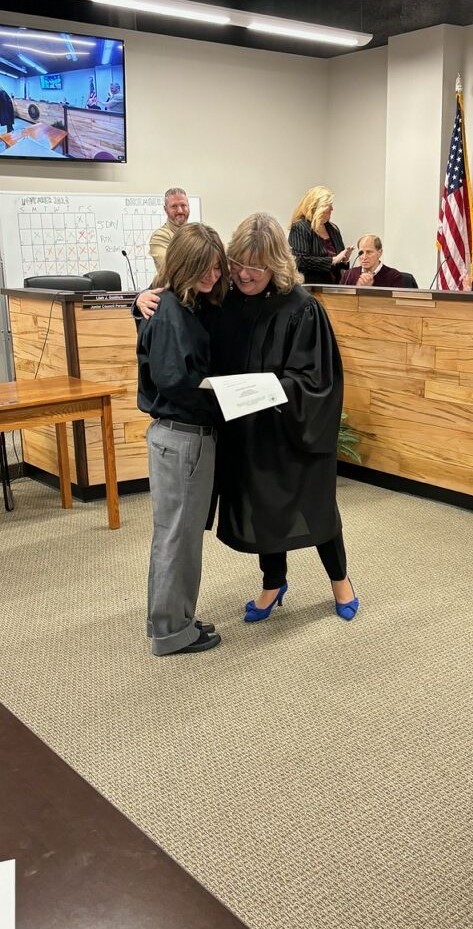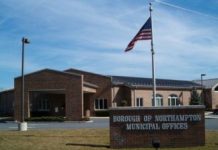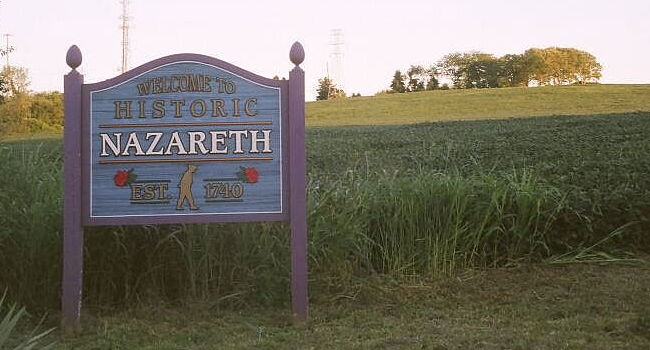
The Bath Borough Council met Tuesday, January 2 for their reorganization meeting and regular monthly meeting, and then again on Wednesday, January 10 for a special meeting.
As the first order of business, Councilpersons Emanuel Mirabito, Frank Hesch and Samantha Angst took their Oath’s of Office. Lauren Bullsnake was sworn in during the special meeting.
The reorganization of officers included the election of Frank Hesch as council president, Michele Ehrgott as vice president and Emanuel Mirabito as president pro-tempore.
Other appointments included the following: renewal of Borough Manager Bradford T. Flynn’s employment agreement; reappointment of James F. Kratz from Stevens E. Lee P.C. as borough solicitor; reappointment of Ron Madison from Colliers Engineering & Design Inc. as borough engineer; Christopher Taylor, Scott Brown, Jacob Schray, Justin Robins and Luke Eggert from Hanover Engineering as sewage enforcement officers; reappointment of Shawn Leidy from Barry Isett UCC/BCO Plan Review Office as the code and zoning enforcement officer; reappointment of Phillip West and Christopher Butera to three-year terms on the Planning Commission; and reappointment of Molly Bender as a board member off the Zoning Hearing Board.

During the special meeting, Attorney E. Lee Stinnett from Salzmann Hughes P.C. provided an in-depth presentation on the borough’s municipal separate storm sewer system management dilemma. Stinnett was hired by the borough to help develop the MS4 program, a potential stormwater fee, the Municipal Stormwater Authority and any agreements needed in relation to stormwater management.
The MS4 program regulates stormwater runoff at the municipal level to reduce pollution discharged into U.S. waterways and is administered by the U.S. Environmental Protection Agency and the Pa. Department of Environmental Protection under the National Pollutant Discharge Elimination System. The permit requires municipalities to develop and implement a stormwater management plan based on six minimum control measures as mandatory elements.
Based on the regulatory requirements, the borough has several large projects that it must complete by the end of 2027 or they run the risk receiving hefty fines.
The dilemma the borough is faced with is finding funding for the MS4 projects due to limited grant opportunities. Additionally, the commonwealth does not permit municipalities to charge a utility or stormwater management fee to residents under the Borough Code and ongoing litigation has been moving slowly since 2018 to provide municipalities with direction on how to move forward with funding for MS4 projects.
However, under the Municipal Authority Act, certain municipalities may charge a utility fee for stormwater management if they are part of a stormwater authority. The act states that municipalities may “exercise all powers necessary or convenient for fixing, altering, charging and collecting rates and other charges in the area served by its facilities at reasonable and uniform rates to be determined exclusively by it for the purpose of providing for the payment of the expenses of the authority, the construction, improvement, repair, maintenance and operation of its facilities and properties.
Moreover, under the Second Class Township Code that the borough falls under, the code asserts that “for the purposes of funding the construction, maintenance and operation of stormwater management facilities, systems and management plans authorized under this article, a township may assess reasonable and uniform fees based in whole or in part on the characteristics of the property benefited by the facilities, systems and management plans.”
The code also states that the fees assessed shall not exceed the amount necessary to meet the minimum requirements of the Federal Water Pollution Act and Federal or State laws governing the implementation of the act.
Stinnett then explained that some of the biggest culprits of stormwater runoff are tax exempt entities such as churches, due to their big buildings and parking lots. Therefore, the stormwater/utility fee would not be a tax and would be based on a property’s impervious coverage and how much rainwater runoff is being contributed, which all property owners including tax exempt entities would be required to pay.
Stinnett also suggested a credit-based program for residents that perform stormwater maintenance or improvements on their property, which encourages participation and would provide a reduction in their stormwater/utility fee.
On the upside, stormwater management updates include updates to roads, which are tied in with stormwater fees and help improve life for residents. According to Stinnett, most MS4 projects will show an improvement to flooding in the community that residents will be able to physically see themselves.
The next steps will be for the MS4 Committee to review Stinnett’s suggestions and then share their recommendations with council. However, the earliest that the proposed quarterly fee could potentially be implemented would not be until January 2025.
Bath Borough Council and the Administration Department expressed that they are going to ramp up the public relations aspect of the project in order to keep residents updated and informed on everything surrounding the MS4 projects, which will be consistently updated on the borough’s website under the MS4 FAQs page.
The next Bath Borough Council meeting will be held on Monday, February 12 at 6 p.m. in the borough’s office building, located at 121 S. Walnut St.









